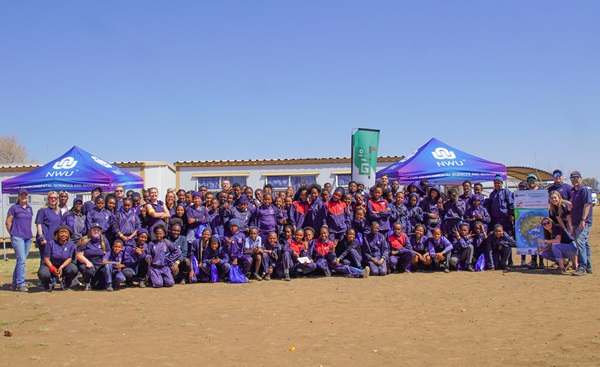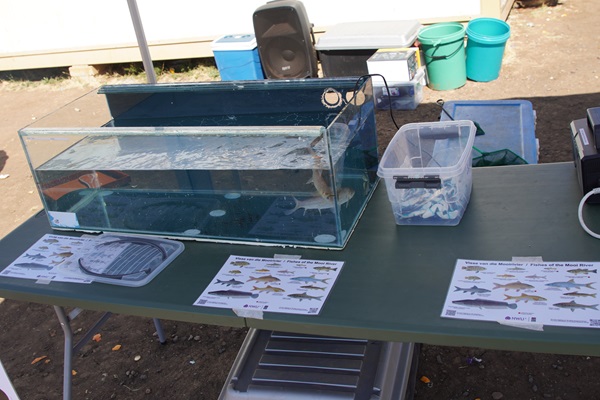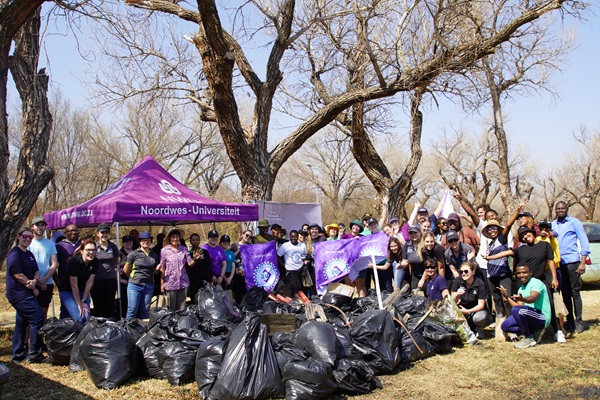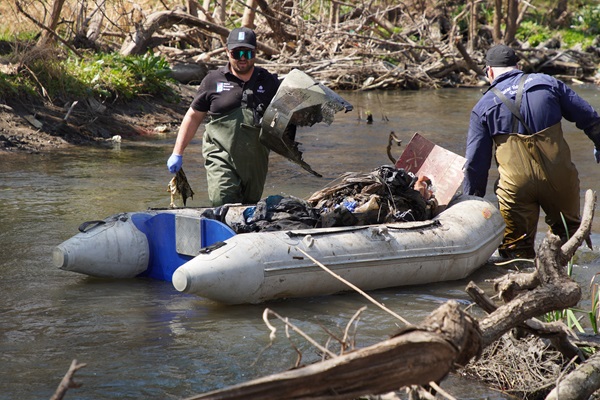The North-West University’s (NWU’s) Faculty of Natural and Agricultural Sciences (FNAS) , together with the Water Research Group, the Safety, Health and Environment Department and the Green Team, celebrated International Water Week from 26 to 30 August in Potchefstroom.
The Zoology subject group of FNAS organised three community engagement activities to raise awareness of the importance of clean water and sustaining water sources for the future. This included a river clean-up at the Trimpark, a Fish Day at Vyfhoek Primary School, and a citizens Science Shop.
Community impact and positive change
On Monday, 26 August, enthusiastic student volunteers and the NWU Green Team descended on the Trimpark, collecting roughly 100 bags of waste found on the banks of and in the water of the Mooi River.
Next, on Wednesday, 28 August, grade 7 learners from Vyfhoek Primary School were treated to an educational Fish Day. The learners were divided into groups of ten and moved between eight different stalls, where they were educated on fish migration, fish body components and how fish live and survive in water.
Tshenolo Masilo, a master’s student in zoology, educated learners about the dangers fish and other organisms that live in the river face.
“I enjoyed spending time with the learners who were actively responding during the lessons and educational games. We used mini fishing rods to remove waste from the water while keeping the fish safe, and the learners had a fun time,” says Tshenolo. “To me, the highlight of the day was when two learners walked up to me and expressed their gratitude and admiration, emphasising how much they enjoyed the experience,” she adds.
On Friday, 30 August, the Water Week celebration ended with a citizen science shop held along the Mooi River. Community members were invited to monitor and test the river water with testing kits provided by WaterCan. This project fosters an active approach to water resource protection in South Africa by establishing networks, sharing data and training among citizen scientists.
Additionally, students also assessed the ecological condition of the Mooi River by using the South African Scoring System version 5 method, which uses macroinvertebrates as a response indicator. These macroinvertebrates have been assigned pollution sensitivity scores ranging from one to 15, where one represents pollution tolerant species and 15 represents pollution sensitive species.

On Wednesday, 28 August, the FNAS held an educational Fish Day at Vyfhoek Primary School, igniting joy and excitement among the young learners.

One of the stalls that were set up educated the learners on some of the fish species present in the Mooi River.


Delegates from the Water Research Group worked hard to clean up the Mooi River.
